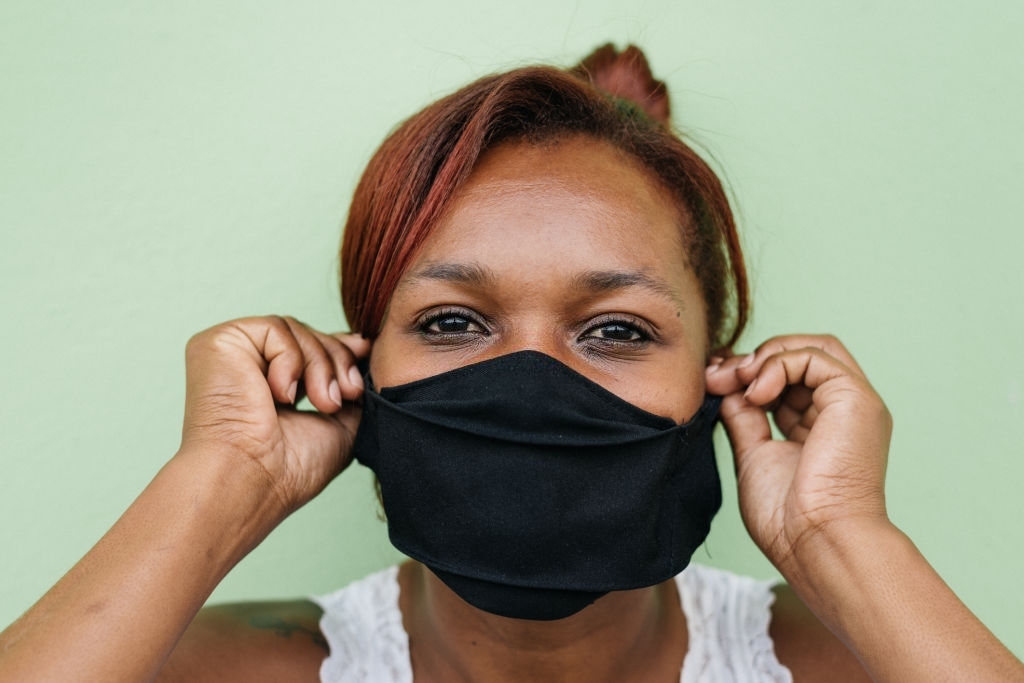Editor’s Note: Information on the COVID-19 crisis is constantly changing. As cases of COVID-19 begin to spike again across the country, it’s...
Here is why:
As we have learned throughout this pandemic, the most common way COVID-19 spreads is through person-to-person contact. When an infected person coughs, sneezes, or talks, they produce respiratory droplets that can travel about six feet and can land in the mouths or noses of those nearby. |
| Wear Your Face Mask To Stop The Spread of COVID-19 - Here’s How and Why! |
To make sure you are properly protected, there are some things you should and should NOT do when wearing a mask or cloth face covering:
- Choose a mask that doesn’t have a valve or other openings in it.
- Make sure it covers your face from the bridge of your nose down to your chin.
- Try to fit it snugly against the sides of your face, making sure there are no gaps.
- Make sure you can breathe easily through it.
- Wash it regularly using water and a mild detergent; dry it completely in a hot dryer; store it in a clean container or bag.
- Do not allow it to slip under your nose and don’t wear it on your forehead or around your neck.
- Do not put it on a child younger than 2, anyone who has trouble breathing or anyone who is unconscious, incapacitated or otherwise unable to remove it without assistance.
- Do not touch the inside of it, as it may be contaminated from your breathing, coughing or sneezing.
- Do not share it with others in your household without washing and drying it first.
While wearing a mask may not keep you from getting COVID-19, it can help lower the odds. If you’re sick, a mask can help keep your germs from infecting others. If you’re healthy, a mask can help keep respiratory droplets from someone who is sick from landing in your nose and mouth.
Despite the CDC’s recommendations, there is one big myth out there about the safety of wearing a mask – that it causes you to breath in dangerous amounts of carbon dioxide. “For those who can medically tolerate wearing a mask, there is no science to support claims that wearing a mask can harm you,” says Valyko. “Health care workers wear masks and respirators daily, often for extended periods of time, without incident. While it may be uncomfortable, this is how we can help protect one another from COVID-19.”
If you have severe lung disease, such as COPD or asthma, Michigan Medicine specialists still recommend that you wear face coverings. While some inaccurate information about masks not allowing sufficient oxygen supply, or increasing CO2 levels have been in the media, there is no medical evidence to support these claims.
There is still so much to learn about COVID-19 but, as we all venture back out to restaurants and stores and re-join our families for birthdays and anniversaries this summer, it’s important to make wearing a mask a priority.
“We are all in this together and wearing a mask helps protect you and everyone around you, especially those who are at the highest risk,” says Valyko.
Disclaimer
Disclaimer: The information contained in this website is for general information purposes only.
The information is provided by Nakiso TV using online sources and while we endeavour to keep the information up to date and correct, we make no representations or warranties of any kind, express or implied, about the completeness, accuracy, reliability, suitability or availability with respect to the website or the information, products, services, or related graphics contained on the website for any purpose.
Any reliance you place on such information is therefore strictly at your own risk.
About Nakiso TV
Nakiso TV is a Zimbabwean content on-demand television network owned by Nakiso Borehole Drilling.
Nakiso TV is a place where you can interact and share with thousands of social celebrities within Zimbabwe. Get access to exclusive celebrity content, photos and videos.
Borehole Drilling Services
Are You Looking For Borehole Drilling Services?
Then Contact Nakiso Borehole Drilling Today!













